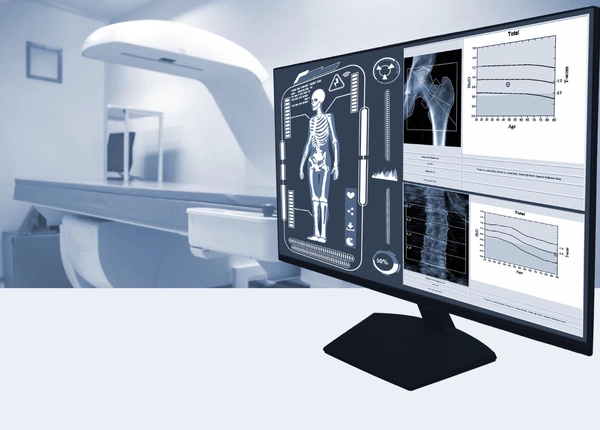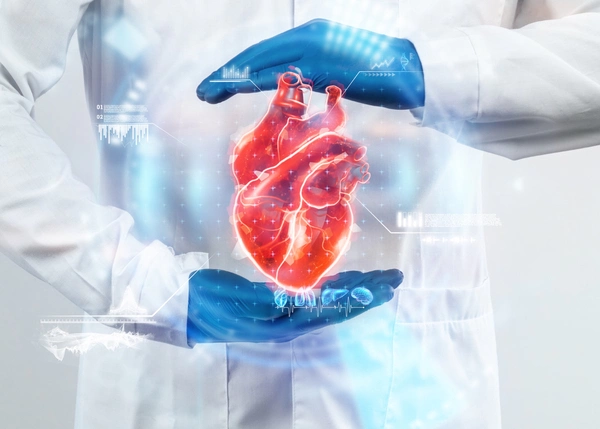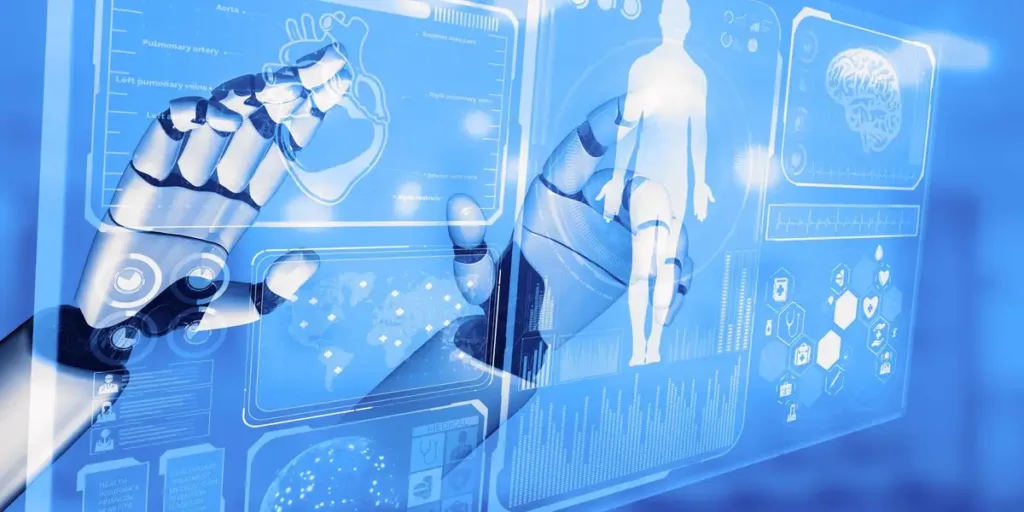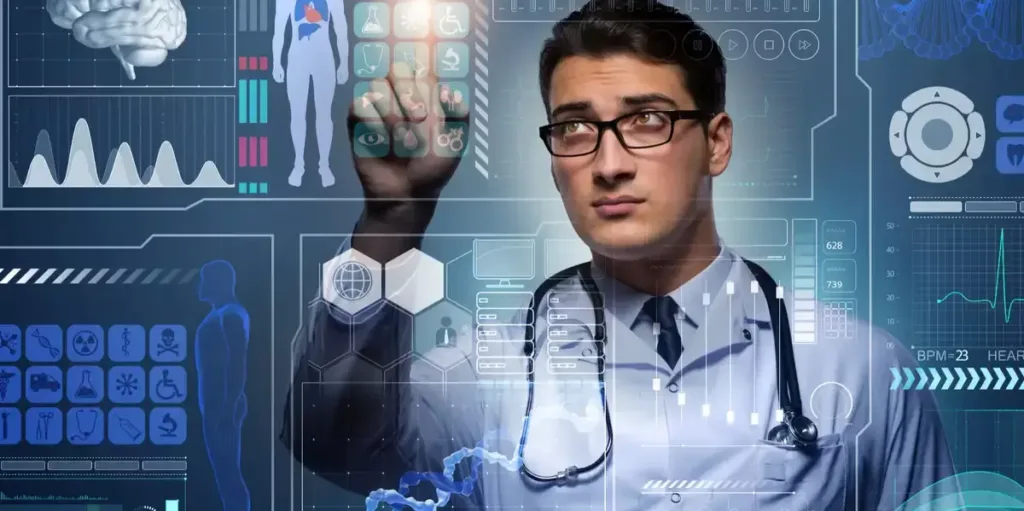Artificial intelligence and machine learning are revolutionizing the field of healthcare diagnostics. By analyzing massive amounts of medical data, AI systems can help clinicians make faster and more accurate diagnoses, which leads to better patient outcomes.
We will explore some of the most impactful ways that AI is currently improving advanced diagnostics. We’ll look at applications across various medical specialties like radiology, pathology, cardiology, and more. By the end, readers will have a comprehensive understanding of how AI technologies are enhancing advanced diagnostics and transforming healthcare.
Medical Imaging Analysis
One of the biggest areas of impact has been in medical imaging analysis using deep learning. Radiologists must interpret huge volumes of scans like X-rays, CTs, MRIs and more. But AI can rapidly analyze images at a scale and speed that humans cannot match.

- Chest X-ray analysis: AI models have been developed that can review X-rays and automatically detect common abnormalities with a similar accuracy to radiologists. This helps prioritize urgent cases.
- Head CT analysis for strokes: Deep learning algorithms have shown an ability to review head CT scans within minutes of arrival and reliably detect signs of acute ischemic strokes, speeding treatment decisions.
- Breast cancer screening: AI can be used as a “second reader” to re-examine mammograms, improving detection rates for cancers radiologists may miss on initial review and reducing unnecessary biopsies.
- Retinal disease screening: Deep learning models have achieved human-level accuracy in diagnosing diseases like diabetic retinopathy and macular degeneration by analyzing retina scan images, with the potential for wide-scale screening of at-risk populations.
By enhancing radiologists’ diagnostic capabilities, AI is helping improve outcomes for many life-threatening illnesses detectable on medical scans. It also increases access to expertise in rural areas.
Pathology Image Analysis
Pathology involves examining tissue and cell samples under microscopes to diagnose diseases. AI is now assisting pathologists with digital pathology image analysis using whole-slide imaging. Some applications include:

- Cancer detection: Deep learning has shown potential for automatically detecting cancer types in biopsy slides, aiding pathologists. Models have been developed for lung, breast, and prostate cancers.
- Cancer grading: AI can analyze tumor samples and provide an assessment of cancer severity or aggressiveness, known as a grade, to help guide treatment decisions.
- Stain normalization: AI enables standardizing color variations in virtual slides stained with different protocols, improving comparability for pathologists reviewing samples from multiple sources.
- Workflow automation: AI is used to automatically identify regions of interest in slides for pathologists to review, speeding the diagnostic process.
By enhancing microscopic analysis, AI helps improve cancer diagnostics and enables more patients to benefit from digital pathology. It also helps address shortages in pathologist expertise.
Cardiovascular Diagnostics
AI is also enhancing advanced cardiology diagnostics in important ways:

- EKG analysis: Deep learning models have been developed that can analyze electrocardiograms and detect arrhythmias, signs of heart attacks, and other cardiac abnormalities with high accuracy to assist clinicians.
- Echo image analysis: AI has shown potential for automatically analyzing echocardiograms to detect issues like changes in heart structure or function and help assess conditions like cardiomyopathies.
- Stress test analysis: AI techniques are being explored to aid in analyzing data from stress tests like treadmill tests or nuclear stress tests to help cardiologists evaluate things like ischemia.
- Artery plaque detection: Deep learning models are in development that may be able to analyze CT angiograms and identify vulnerable plaque in arteries that pose a high risk of heart attacks or strokes.
By aiding in the analysis of cardiac tests, AI technologies have the potential to improve the diagnosis of heart conditions, which are leading causes of death worldwide. It could also help expand access to cardiology expertise.
Other Medical Specialties
Beyond imaging and cardiology, AI is also augmenting advanced diagnostics in other areas:
- Dermatology: Deep learning has achieved human-level accuracy in classifying skin lesions in images and may help pathologists diagnose skin cancers.
- Ophthalmology: AI shows promise in assisting with tasks like diabetic retinopathy screening, age-related macular degeneration detection, and glaucoma risk assessment using eye scans.
- Pathology: AI is enhancing tasks like analyzing digitized slides for diseases affecting organs like the liver, kidneys, and more.
- Genomics: Machine learning can help clinicians interpret complex genomic data and detect disease risks, mutations, or predispositions by analyzing DNA sequences.
As more medical data becomes available and AI models continue to advance, their diagnostic capabilities will expand to new specialties. The technology has great potential to improve outcomes across all areas of medicine.
Impact on Healthcare Delivery
By enhancing diagnostics, AI is helping transform healthcare delivery systems in important ways:
- Faster diagnosis times: AI-powered advanced diagnostics can significantly reduce the time needed to identify diseases, enabling quicker treatment decisions.
- Improved access: AI expands access to diagnostic expertise, especially in underserved areas lacking specialists. Models can be deployed anywhere.
- Early detection: AI may help detect diseases earlier through large-scale screening programs, improving the prognosis.
- Reduced costs: More efficient advanced diagnostics can lower costs by reducing unnecessary tests, clinician workloads, length of hospital stays, and more.
- Personalized medicine: AI combined with other data sources like genomics can help deliver more personalized, predictive, preventative, and participatory healthcare technology management models.
As AI-advanced diagnostics capabilities continue advancing, they have great potential to improve patient outcomes globally while making healthcare delivery more efficient, accessible, and affordable for all.



